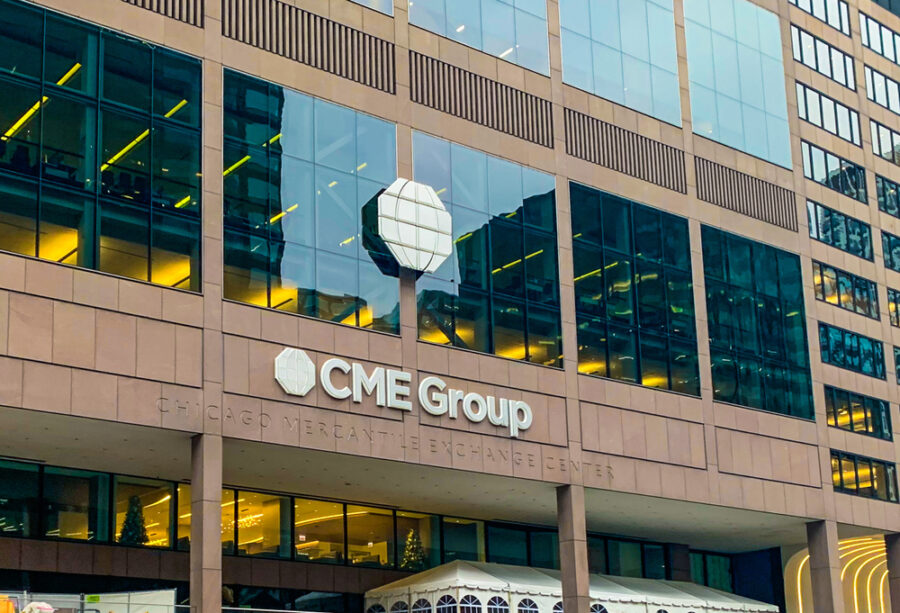CME Group prepares sports-linked contracts to rival Kalshi and Polymarket

Chicago-based derivatives exchange CME Group plans to launch financial contracts linked to sports events and economic indicators before the end of the year, competing with prediction-market operators Kalshi and Polymarket, according to Bloomberg.
CME intends to distribute the new products through futures commission merchants, including one being developed with sportsbook operator FanDuel. Shares in DraftKings, a rival to FanDuel, dropped about 3.8% in post-market trading after reports of the project before recovering some losses.
CME announced its collaboration with FanDuel this year to create contracts tied to economic data. CEO Terry Duffy hinted in August that sports could follow, saying the exchange was “operationally ready” to list such products.
FanDuel said it was maintaining an “open dialogue” with state regulators as legal boundaries evolve between gambling products and federally regulated financial instruments, as some regulators continue to caution that they cannot offer both.
Yet, prediction markets have recently gained recognition after winning such regulatory challenges.
Kalshi secured a US court ruling last year allowing election-related trading, while Polymarket acquired a Commodity Futures Trading Commission-regulated exchange this year.
CME’s existing Commodity Futures Trading Commission license permits it to self-certify new contracts without waiting for explicit federal approval, potentially speeding up the rollout. Its recent filings listed event contracts linked to stock indexes and cryptocurrencies, though none yet tied to sports results.
Charlotte Capewell brings her passion for storytelling and expertise in writing, researching, and the gambling industry to every article she writes. Her specialties include the US gambling industry, regulator legislation, igaming, and more.
Verticals:
Sectors:
Topics:
Dig Deeper
The Backstory
Setting the stage for Wall Street’s latest wager
CME Group’s move to create financial contracts tied to sports outcomes arrives as the line between federally regulated event contracts and state-regulated sports betting shifts fast. The exchange already has a CFTC license and can self-certify new products, giving it a procedural edge to debut listings without waiting for explicit approval. The strategy builds on CME’s partnership work with FanDuel and follows early signs that institutional pipes can be adapted to deliver event contracts to mainstream investors through futures commission merchants.
The immediate market reaction underscored the stakes: a brief drop in DraftKings shares when the news surfaced suggests sportsbook investors are attuned to any credible threat that could drain or reshape demand. If CME can route sports-linked exposure through regulated financial channels, it could reframe how retail and professional traders hedge or speculate on high-profile games, while forcing sportsbooks to defend share and pricing.
But the path is not just commercial. It runs straight through contested regulatory territory where definitions of gambling, insurance and financial hedging are being tested in court and at agencies. That context explains why FanDuel is signaling ongoing dialogue with state regulators and why CME emphasizes that its products will sit within existing futures market safeguards.
A fast-shifting U.S. rulebook
Event contracts have been on the march. Kalshi, the federally regulated event-contract exchange, pushed the boundary with election markets and won a legal fight last year that expanded its ambit. It then proceeded to sports, filing with the CFTC and listing initial markets in a simple “will team win title” format. See Kalshi’s launch of sports event contracts for the first phase of that push, including the Jan. 23 go-live date.
The CFTC has tread carefully. Crypto.com’s attempt to list Super Bowl-focused markets drew agency objections, and the platform continued operating those contracts despite a removal request, according to Kalshi’s account of the episode. The episode highlighted a core regulatory tension: when is an event contract a permissible financial instrument, and when is it an impermissible gaming product that belongs under state gambling law instead?
CME is stepping into that contested space with advantages smaller platforms lack: deep compliance infrastructure, risk surveillance and a longstanding track record shepherding new futures and options through the CFTC’s self-certification process. The exchange’s prior filings for event-linked contracts tied to stock indexes and crypto offer a template for how it could structure and margin sports outcomes to pass regulatory muster while limiting manipulation risk.
Prediction markets extend their reach
Momentum is not limited to elections or macro prints. Kalshi’s sports listings show that appetite exists for outcome pricing on culturally central events that draw mass attention and liquidity. The structural appeal is familiar: standardized, binary payouts that settle cleanly and can be risk-managed, a format that translates well across asset classes and events.
For regulated prediction markets, sports are a natural on-ramp for retail users who already price risk informally via sportsbooks. The open question is whether sports event contracts can scale inside futures-market guardrails without bleeding into consumer gambling. Kalshi’s election approval and subsequent sports rollout indicate the regulatory ground is not static. That dynamism is likely part of CME’s calculus: the more event contracts look like conventional hedging tools—transparent, surveilled, standardized—the stronger the argument that they belong on national exchanges.
At the same time, any perception that federally regulated sports contracts undercut state betting regimes will invite scrutiny. FanDuel’s public emphasis on working with state overseers is a tell that market participants expect friction where jurisdictions overlap.
Global enforcement tightens around online betting
The U.S. conversation is unfolding as governments worldwide harden their stance on illicit online gambling. Indonesia has accelerated enforcement on payment rails and account abuse, ordering banks to freeze 17,026 gambling-linked bank accounts and mandating enhanced due diligence on dormant accounts that can be repurposed for fraud. Earlier, authorities also suspended more than 5,000 accounts in a bid to choke off financing channels and deter related crimes.
In the Philippines, the national regulator is leaning on technology to police the market, testing an AI system to flag illicit sites at scale and expanding responsible-gambling tools. PAGCOR’s plans include behavioral monitoring, fraud prevention and a 24/7 helpline. Those priorities, detailed in PAGCOR’s AI enforcement initiative, reflect a broader shift: authorities want legal, surveilled alternatives while cutting off unregulated operators.
The global crackdown matters for U.S. event contracts because it reframes the policy question. Regulators are not only asking whether to permit betting; they are weighing whether regulated exchanges can offer cleaner, more transparent risk-transfer than offshore books. If exchanges like CME can show that sports-linked contracts reduce fraud, protect customers and keep activity inside monitored financial venues, the policy case strengthens even as political optics remain sensitive.
Market expansion tests the compliance perimeter
The growth side of the ledger is also in play. As governments open regulated channels, licensed operators are expanding, raising the compliance bar for anyone offering sports exposure in any form. In Brazil, a fast-growing market with new rules, Philippine operator DigiPlus plans a Sept. 22 launch as its first major international push. The company’s plan to roll out GamePlus with a large catalog and local content underscores how quickly regulated ecosystems can scale when the legal framework is clear. See DigiPlus’ Brazil entry for details.
This two-track story—regulatory tightening on illicit operators and sanctioned expansion by licensed firms—creates both opportunity and risk for event-contract venues. Institutions will favor products that resemble familiar derivatives, clear through known intermediaries and operate under strict surveillance. That profile aligns with CME’s pitch. But if sports event contracts blur into retail gambling in practice, or if marketing muddies the distinction, expect pushback from both federal and state watchdogs.
What to watch next
Several milestones will signal how far and how fast CME and rivals can go. First, watch the design details: contract sizes, position limits, eligibility rules and settlement protocols will reveal how CME plans to address manipulation and consumer protection. Second, monitor agency posture. If the CFTC accepts self-certified sports listings without objection, the market could scale quickly; any challenge would slow the rollout and set precedent for others.
Third, look at distribution. CME’s plan to route products through futures commission merchants—and its relationship with FanDuel—will test whether traditional brokerage and sportsbook ecosystems can coexist without regulatory conflict. Finally, track competitive responses. Kalshi has first-mover sports listings and a growing user base; sportsbooks may counter with enhanced in-play markets or partnerships to retain customers on their turf.
For investors, the pivot from betting slips to standardized contracts could pull a slice of sports risk into portfolios alongside earnings, weather and inflation exposures. For regulators, the question remains whether finance’s controls can make sports outcomes a tolerable underlying—or whether some games are still too hot for the futures market to touch.







